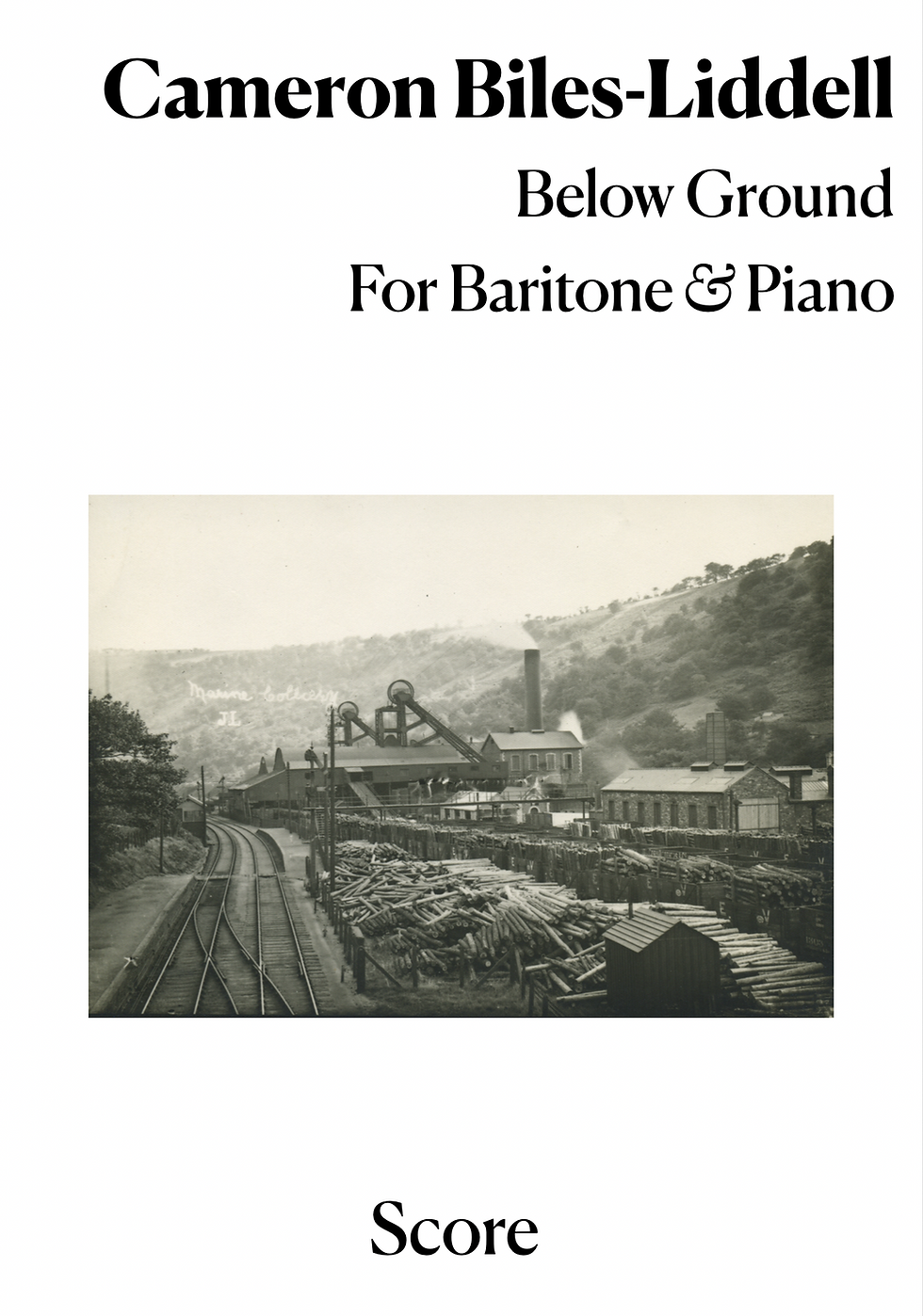



Below Ground
for Baritone & Piano
Total Duration: 20'
I - Prelude
II - Ah, You That Breath the Upper Air
III - Interlude [Piano only]
IV - Workers Song
N.B. This can be performed as individual movements, or as a complete cylce.
Commissioned by the Welsh Music Guild as part of the Paul Mealor Prize for Student Composers in 2022.
Below Ground is a reflection on my Welsh heritage, as well as family mining background from
the Cwm Valley. The song cycle explores the theme of news and reportage through various
points of history and perspectives; taking extracts from King George the Sixth to poetry
published in newspapers, written by miners in Wales and Cornwall in the 19th Century. As
someone who grew up on brass bands and mining stories from my Grandad, these songs
offered me the opportunity to learn more about the rich history of mining communities, giving
me insights to their day-to-day life. As such, I wanted this to inform the overall structure of my
song cycle, where each movement offers a different perspective on miners. When researching
texts and discovering a wide variety of source material, this cycle suddenly became a personal
project. After reading the miners poetry, I recalled memories of my Grandad (whom this work is
dedicated too), and the initial working life he went through before pursuing a career as an
operatic tenor.
To me, it was important to capture the danger associated with this profession. Miners would
often risk their lives in poor conditions and wages in order to provide the necessary fuel to keep
the country functioning. This led to me using the more chromatic and darker aspects of my
musical language to convey the poetic unrest and disquiet amongst the workers.This is reflected
in the initial two movements, where the speech of King George VI recounts a mining disaster in
the Welsh Village of Senghennydd in the early 20th Century. In contrast, the initial miners poem
in movement two, entitled ‘Ah, You That Breath The Upper Air’ , reflects on the danger of the
work and the ignorance of the upper classes at the time. However, I did not want this piece to
be one-dimensional and focus purely on the political anxiety of the times. Therefore, the final
movement entitled ‘Workers Song’, takes form as a folk-song. Invoking the traditional songs that
miners might have sung during their journeys to and from the mining pits.